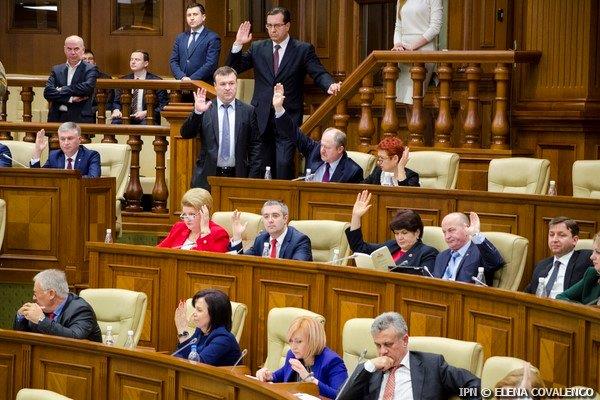
The Democratic Party’s bill to amend the Election Code and replace the party-list proportional representation system with the uninominal voting system was adopted in the first reading by 52 votes for. The Socialist MPs voted against, arguing the bill profanes parliamentary activity. The Lib-Dems also voted against, saying the bill endangers democracy and the rule of law. The Liberal MPs didn’t take part in the vote. They left the assembly hall before the bill was put to the vote in protest. The Communist MPs didn’t come the sitting, IPN reports.
Democratic MP Sergiu Sarbu said that over 800,000 people support the direct election of MPs. The fact that each candidate for MP will depend strictly on the people’s vote will make these more responsible. The modification of the electoral system will enable the local elected officials to be closer to the people, who will have the right to dismiss the elected MP if this does not do his job. The bill was submitted to the Venice Commission for consideration and the appraisal is to be adopted in its June meeting.
The legislative initiative envisions the election of MPs in 101 electoral constituencies, by one MP in each constituency. To be registered, the candidate must present subscription lists with the signatures of at least 1,000 and at most 2,000 supporters with the right to vote. The candidates will be able to run in one uninominal constituency. The candidate who gains a majority of valid votes is considered elected. There will be no election threshold. For Parliament to be legally constituted, the Constitutional Court must validate minimum two thirds of the seats.
The MP can be dismissed by local referendum if this does not respect the interests of the community in the constituency, does not appropriately fulfill his duties defined by law and violates the moral and ethical norms. The local referendum can be initiated one year after the MP takes up his duties or after the previous local referendum. This cannot be held during the last year of the term.
The uninominal constituencies will be created by the Central Election Commission within six months of the coming into force of this law, according to a calculation formula based on the number of voters included in electoral registers at each polling place in the last national elections. The borders of uninominal constituencies can be reviewed 90 days before the ordinary elections at the latest.
Socialist MP Vlad Batrancea said that after eight years of government, the rating of the ruling parties is very low and it’s clear that if the current electoral system is kept, these parties will be history. This bill is also examined in a hurry and with procedural violations. It is dangerous for democracy and the rule of law.
Liberal-Democratic MP Iurie Tap said the bill will affect the representative character of Parliament as well as democracy and the rule of law. The MP will have no contact with the constituency as his duty is to work out laws to ensure better living conditions, not to travel to communities. A party wants to remain in power at all costs and thus aims to replace the electoral system.











